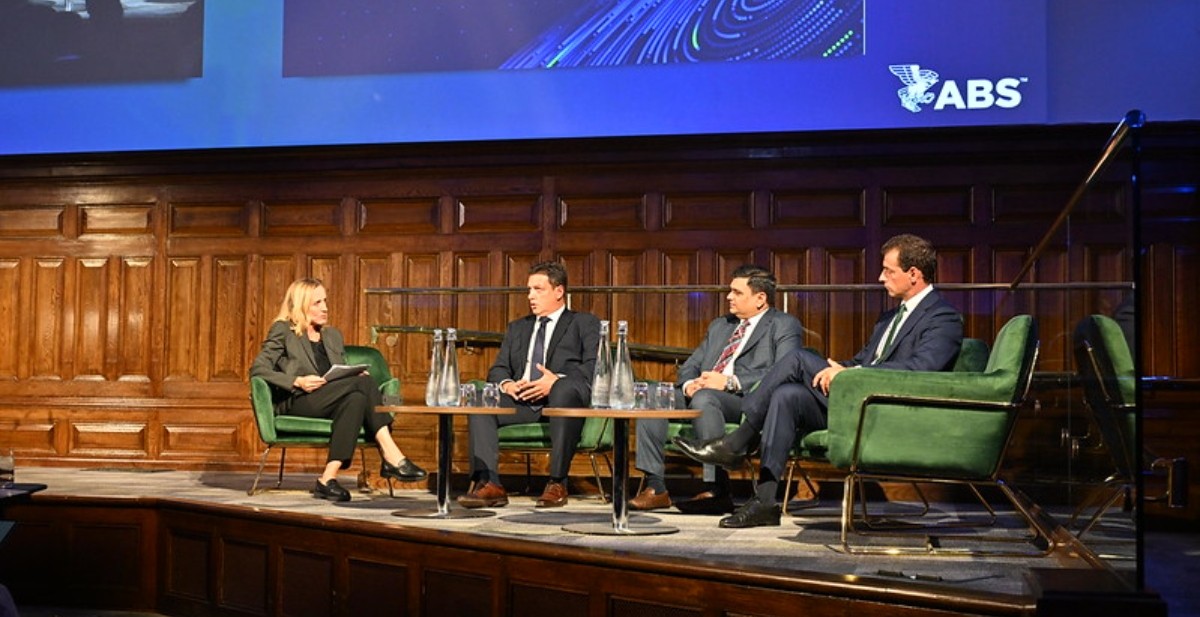A digital sea change

Tackling fragmentation, AI, and the cyber battlefield
By Carly Fields
The push for digitalisation in shipping is less a gentle tide and more a high-stakes race against obsolescence, according to speakers gathered at London International Shipping Week (LISW).
Two panels focused on the twin challenges of integrating advanced technology into a deeply fragmented industry while simultaneously battling existential threats ranging from data silos to hostile state-sponsored cyber campaigns.
The consensus was both was clear: the sector must evolve from its traditional, often reactive approach to one built on unified data and predictive intelligence. Robert Gaina, senior vice president, commercial, at Ardmore Shipping, speaking at the ABS Sustainability Summit, encapsulated the opportunity facing the industry:
“Given the fragmentation of the shipping industry and the old school mentality, digitalisation has a real opportunity to bridge the old with the new.
The ability to breakthrough and make quicker decisions will be really valuable.”
However, the path to a fully digital maritime future is choked by economic realities, particularly for the mainstay of global trade: the small to mid-sized shipowner. Robert Desai, chief executive officer of V. Ships, brought the ABS debate down to a crucial financial metric: “Fragmentation: the average ship owner has five ships and does not have cashflow to invest in fancy solutions,” he said. He suggested a rigorous test for any new technology vendor: “The best framework for analysis for anything is going to be look at that shipowner, what would it take for them to spend their hard-earned cash on that particular system?”
One truth
For those who can invest, the primary target is the creation of a single source of truth. Desai highlighted the necessity of data uniformity, asking: “What’s the alternative to a single source of truth? Confusion, conflict.” This sentiment was echoed by Niraj Nanda, chief commercial officer at Anglo-Eastern, who sees digital adoption not as a mere upgrade, but as a fundamental restructuring of operations. “We look at digital not as just a tech upgrade, we look at it as a functional transformation,” Nanda said. “A single source of truth is a unified data set that is validate and verified and that can be shared across all the stakeholders in shipping. If you have this you eliminate errors, omissions, and inconsistencies.”
But the stakes associated with this transformation are high. For Gaina, the drive is towards a wholly new operational concept: the shift from monitoring to foresight.
“Predictive AI changes fundamentals. We move from reactive to predictive and that comes with quality of data and historical data,”
he said. There was a warning for those who fail to make this jump: “If we do not have available data we will disappear.”
Beyond internal operational matters, the LISW headline conference panel addressed the global nature of shipping and the critical need for technological inclusion. Nusrat Ghani MP, deputy speaker of the House of Commons, raised the perspective of emerging economies, asking, “what more can be done to try and share what we know with those countries so they can come on par with us sooner rather than later?”
Levelling up
Regina Asariotis, Chief, A.I. of the Trade Logistics Branch, Division on Technology and Logistics at UNCTAD, framed the necessity of sharing technology not as charity, but as structural interdependence. “I would say, first of all, we have to remember that shipping is the epitome of a global industry. Global industry requires global rules, requires global co-operation, and we're talking about a great deal of interdependency,” she said. She added that developing countries face greater exposure to risk, often suffering much higher transport costs than the global average. “Any kind of disruption is going to affect them most.” Her message was one of shared purpose: “So in terms of how the rest of the world can help the developing countries, it is to remember that it is a same part of the same sort of microcosm and help them share in the technology.”
Against this backdrop of tech modernisation and globalisation, an external tech-related threat remains: cyber warfare. Professor James Henry Bergeron, political advisor to the commander at NATO Allied Maritime Command, speaking at the headline conference, acknowledged past breaches:
“There have been some spectacular cyber attacks in the world of merchant shipping”
, yet while awareness is high, adaptation remains “uneven”.
Professor Bergeron provided an assessment of the broader defence landscape, suggesting that the commercial sector may be leading the way. “I would actually suggest that the commercial shipping world and perhaps the banking world are far in advance of others. A large part of our commercial networks and our industrial networks either aren't as aware or haven't invested in the tools. It's a real challenge we have.”
He also warned against taking a siloed approach to defence, where “what starts in cyber, stays in cyber”. He concluded that the volume of attacks means the cyber challenge “is very real”.
“It's hard not to call it a war by any other name, in terms of the amount of cyber attacks that the UK and other states are regularly trying to defend against.”